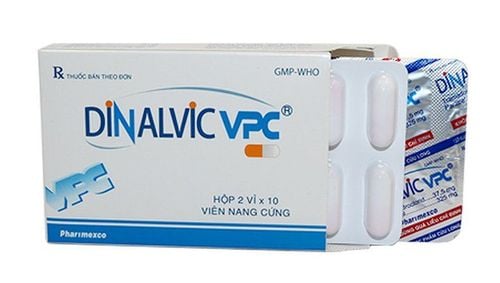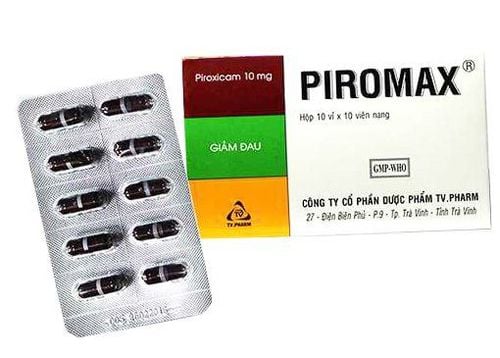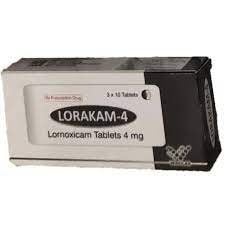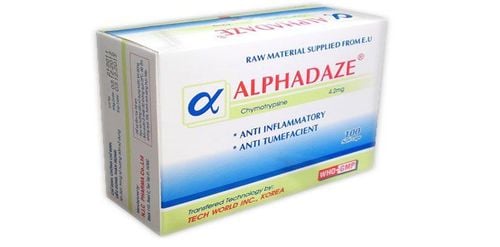This is an automatically translated article.
Goltolac belongs to the group of analgesics, antipyretics, non-steroidal anti-inflammatory drugs, treating gout and bone and joint diseases. To ensure the effectiveness of use, in addition to carefully reading the instructions for use before use, the patient should strictly follow the instructions of the doctor and pharmacist advising on the use of the drug.
1. What does Goltolac do?
Goltolac medicine has the main ingredient Etodolac 200mg. The drug is prepared in the form of hard capsules, packing is a box of 10 blisters x 10 tablets.Thanks to the above active ingredients, the drug Goltolac works to treat the following diseases:
Treatment of osteoarthritis, acute gout attacks or pseudo-gout; Effective in reducing pain after tooth extraction, postoperative pain, pain after episiotomy; Has the effect of reducing pain caused by dysmenorrhea; Effective in relieving acute musculoskeletal pain of various causes.
2. Dosage and how to use Goltolac
Dosage and administration of Goltolac are as follows:
2.1. Dosage For the treatment of osteoarthritis, the maximum total dose of gout used is 1200mg/day; For patients with body weight less than 60kg, the maximum total dose used is 20mg/kg/day; For the use of drugs to treat pain in dentistry, the dose is 200mg x 3-4 times/day; For the treatment of extensor tendonitis, bursitis, elbow condylitis, tenosynovitis, plantar fasciitis and pain due to episiotomy, the dose is 400mg x 2-3 times/day. 2.2. How to take Goltolac is made in the form of tablets and is taken orally. The patient should take the medicine exactly as directed by the doctor or pharmacist. Do not arbitrarily change the dose and use of the drug.
3. Notes when using the drug Goltolac
Please dial HOTLINE for more information or register for an appointment HERE. Download MyVinmec app to make appointments faster and to manage your bookings easily.
3.1. Contraindications Contraindicated to use Goltolac drug in the following cases:
Do not use Goltolac drug with cases of hypersensitivity to etodolac or any other ingredients in the drug; Do not use the drug in patients with a history of asthma, urticaria or other allergic-type reactions after taking aspirin or other non-steroidal anti-inflammatory agents; Do not use the drug with patients with severe liver failure, severe kidney failure; Do not use the drug in children under 15 years of age, because safety and effectiveness in children have not been fully studied; Do not use the drug with pregnant women in the third trimester and women who are breastfeeding. 3.2. Side effects of the drug Goltolac During the use of the drug, patients may experience one or more than 2 symptoms that are side effects of the drug such as:
Feeling chills, fever; Digestive disorders: Abdominal pain, diarrhea, flatulence, nausea, constipation, gastritis, black stools; Feeling dizzy, depressed or irritable; Appearance of rash, itching; Blurred vision, tinnitus; Difficulty urinating or urinating frequently; Occasionally occurs fluid retention, edema, anemia. Patients need to inform the doctor about the unwanted effects encountered when using the drug.
3.3. Precautions while using Goltolac drug in the following cases:
Careful monitoring of renal function and urinary excretion is necessary in patients with heart failure, liver failure, chronic renal failure or patients taking diuretics. urine ; The hemoglobin and hematocrit should be checked periodically for signs of anemia, which can sometimes occur in patients taking non-steroidal anti-inflammatory drugs; Patients receiving the drug may give a false-positive reaction to bilirubin - urine due to the presence of phenolic metabolites of etodolac in the urine; Use with caution in patients with fluid retention, high blood pressure, heart failure, the elderly; Use with caution in patients with a history of peptic ulcer, gastrointestinal bleeding. 3.4. Drug interactions Possible drug interactions during use are as follows:
Co-administration of Goltolac with gastric antacids may reduce the concentration of etodolac in the blood; Co-administration of Goltolac with aspirin and other non-steroidal anti-inflammatory drugs increases the effect of the drug; Co-administration of Goltolac with warfarin reduces the protein binding of warfarin; Co-administration of Goltolac with Etodolac when co-administered with cycloserin, digoxin, lithium, methotrexate will reduce the clearance of these substances and increase toxicity. Goltolac drug belongs to the group of analgesics, antipyretics, non-steroidal anti-inflammatory drugs, treating gout and bone and joint diseases. To ensure the effectiveness of use, in addition to carefully reading the instructions for use before use, the patient should strictly follow the instructions of the doctor and pharmacist advising on the use of the drug.
Follow Vinmec International General Hospital website to get more health, nutrition and beauty information to protect the health of yourself and your loved ones in your family.













